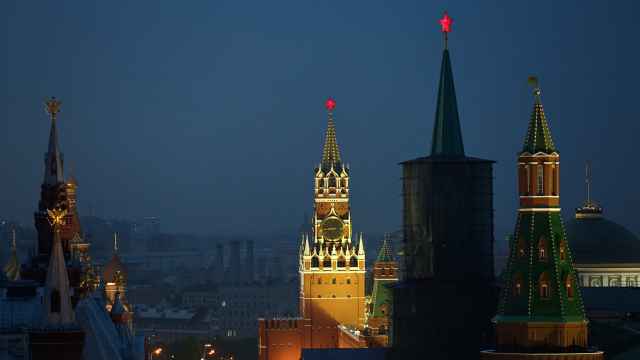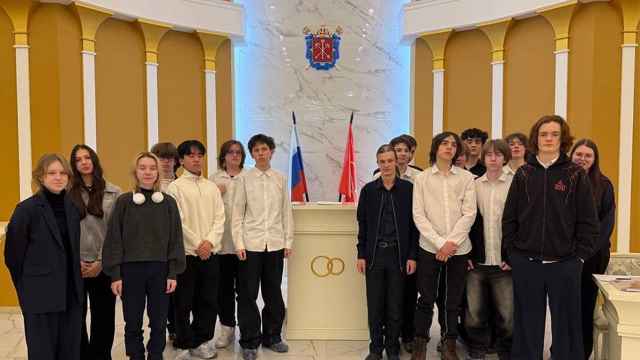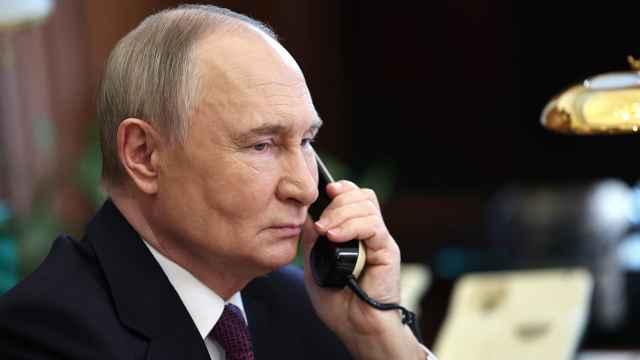Imagine waking up one morning without your citizenship.
That's what essentially happened to at least nine Russians after their names simply vanished from Foreign Ministry computers.
Viktor Gorn, 70, and his 72-year-old wife, Taisia Kirichenko, found out the hard way when they turned to the Russian consulate in Hamburg in 2009, Germany, to register their move from Leipzig. Consulate officials informed them that their names were not listed in the Foreign Ministry's database and confiscated their passports that were issued the same year in Leipzig, Gorn said.
When the couple applied with the consulate in Hamburg in 2009, they faced another rejection — and consulate officials confiscated their expired passports.
The rude treatment at the hands of their countrymen surprised the couple, who moved to Germany in 1993 and had immediately registered at the consulate. They later obtained German citizenship but had faced no trouble renewing their Russian passports until 2009.
"Authorities don't seem to realize that each Russian national abroad is a mouthpiece for Russia," Gorn said by telephone. "They can spread the good word about Russia, and therefore they have to be taken care of."
After repeated requests to consulate officials and a letter from the German Human Rights Union, the couple was promised that they would receive their passports this month, Gorn said.
Gorn and his wife are among the lucky ones. The German Human Rights Union says that at least 10 Russians living abroad have been mired in the same Kafka-esque limbo over the past three years. In many cases, officials said the applicants were not listed in state databases — even though the same agencies previously had no trouble issuing passports. One Russian was asked to go back to Russia for proof of his citizenship.
Officials have remained largely silent on the reasoning for the refusals, leaving ample room for speculation about bureaucratic indifference or disdain for emigres.
Russia uses two types of passports, internal and travel. The travel passport is the sole document that authorizes trips abroad and had to be renewed every five years until recently, when the period was extended to 10 years. It is the travel passport that has proved hard to obtain from abroad.
Of the 10 Russians refused travel passports, nine live in Germany and the 10th is a temporary worker in Brazil, said Leonid Belokonj, deputy executive officer at the Cologne department of the German Human Rights Union.
Belokonj provided The Moscow Times with contacts for nine of the Russians. Four of them refused to speak on the record, citing fear of reprisal from Russian diplomats.
Of the remaining five, two were eventually issued passports, but only after months of waiting and several official complaints to the authorities. Gorn and his wife are now waiting for their passports, while the fifth has a lawsuit pending in Russia.
Alexander Polozin, 60, never held citizenship in any country other than Russia, but consulate officials in Brazil, where he has worked since 2000, initially told him that he had to go to Russia to confirm that he was Russian.
He filed complaints and requests, and the office of federal ombudsman Vladimir Lukin even called the consulate on Polozin's behalf. The Federal Migration Service eventually confirmed that he was Russian, and his passport was renewed, the general consul in Sao Paolo, Dmitry Bushuev, said by telephone.
Ljudmila Bannack, a translator who moved from Moscow to Germany in the 1970s, also got her passport renewed after some fuss. A consulate worker told her that her passport was renewed "as an exception" and only because she had "never held foreign citizenship," Bannack said by telephone.
But her son was not so fortunate. Born in Germany, Maxim Bannack, 32, first received a Russian passport in the mid-1990s. He had not renewed it until 2008, when the Russian consulate in Leipzig told him that he was not in the Foreign Ministry's database and could only get a passport if he gave up his German citizenship, his mother said.
He filed three complaints with the consulate through 2008 and 2009 and received a single reply, reiterating the refusal.
His mother also wrote to the consulate three times, twice each to President Dmitry Medvedev and Prime Minister Vladimir Putin and once to the Public Chamber. None wrote back.
Maxim Bannack filed a lawsuit with a Moscow district court last year, but lost. His appeal is to be reviewed by the Moscow City Court in June.
Repeated calls to Maxim Bannack went unanswered, and his mother explained that he was too busy to talk to a reporter.
The state agencies involved in the passport problem also had no immediate comment. Inquiries submitted to the Foreign Ministry's press office, Russia's consulates in Leipzig and Hamburg, as well as to the Federal Migration Service, went unanswered Wednesday. Also unanswered were repeated calls to the head of the Foreign Ministry's consular department, Andrei Karlov; the head of the department's passport section, Vladimir Minchenko; and Konstantin Poltoranin, spokesman for the Federal Migration Service.
Ljudmila Bannack, who described herself as a patriot, expressed "shame" with her homeland.
"I never thought it was better in Germany, and I didn't come here for the money," she said, adding that she felt "very attached to Russia."
A Message from The Moscow Times:
Dear readers,
We are facing unprecedented challenges. Russia's Prosecutor General's Office has designated The Moscow Times as an "undesirable" organization, criminalizing our work and putting our staff at risk of prosecution. This follows our earlier unjust labeling as a "foreign agent."
These actions are direct attempts to silence independent journalism in Russia. The authorities claim our work "discredits the decisions of the Russian leadership." We see things differently: we strive to provide accurate, unbiased reporting on Russia.
We, the journalists of The Moscow Times, refuse to be silenced. But to continue our work, we need your help.
Your support, no matter how small, makes a world of difference. If you can, please support us monthly starting from just $2. It's quick to set up, and every contribution makes a significant impact.
By supporting The Moscow Times, you're defending open, independent journalism in the face of repression. Thank you for standing with us.
Remind me later.






